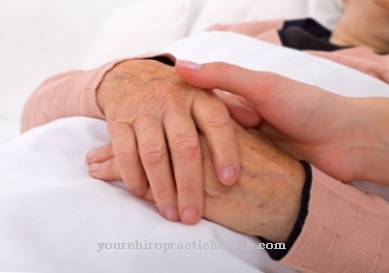Circulatory problems or Circulatory disorders usually manifest themselves as a drop in blood pressure or a general weakening of the circulatory system. Typical accompanying symptoms are therefore a pale face, tiredness, dizziness, dark circles and general weakness. Circulatory problems should always be examined by the doctor in order to rule out diseases and to stabilize the general condition.
What are circulatory problems?

Acute or chronic circulatory problems or circulatory disorders are understood as a function-related, age-related or organic disorder of the entire blood circulation. It can also be a disturbance in individual vessels or a region of the vessel. Circulatory problems is a generalizing term that remains extremely vague as a description of the cause.
With circulatory problems only the symptom is named. A circulatory disorder usually occurs relatively suddenly and manifests itself through dizziness, visual disturbances, hot flashes, panic, unsteady gait, heart problems, headaches, feelings of weakness, changes in blood pressure and the like.
The acute circulatory problems usually pass relatively quickly, although they feel threatening. However, acute circulatory problems can also hide a serious illness. In the worst case, a serious circulatory disorder means fainting, unconsciousness and circulatory failure up to death.
causes
Numerous things come into consideration as causes for circulatory problems or circulatory disorders. A circulatory disorder that lasts for a long time, causes severe symptoms or occurs frequently, always belongs in the hands of a doctor and must be clarified.
Low blood pressure can be the cause of circulatory problems, but an infectious disease or a secondary disease after a tick bite can also be the trigger. Severe blood loss, anesthesia, alcohol, nicotine or drug abuse, severe diarrhea, high blood pressure, poisoning, shock, hypothermia or metabolic disorders can trigger a circulatory disorder.
Heart disease, certain medications, bronchial asthma, an embolism, arteriosclerosis or nerve diseases can also cause circulatory problems. As a result of severe arteriosclerosis, a circulatory disorder is the most common cause of death in Germany. Circulatory problems are also common in old age because the vessels calcify, old people move less and far too little water is supplied. This is a good way of preventing an age-related circulatory disorder.
Diseases with this symptom
- Infectious diseases
- bronchial asthma
- arteriosclerosis
- Alcohol addiction
- poisoning
- embolism
- Drug addiction
- Nicotine addiction
- abdominal influenza
Complications
Most circulatory problems have no long-term consequences. The greatest danger comes from a circulatory collapse and the resulting impotence. A fall can lead to serious injuries such as broken bones and head injuries. Immediate circulatory problems lead to dizziness, palpitations and similar disorders of the cardiovascular system.
If there is a serious underlying condition such as a heart valve defect or stenosis, it can also lead to a heart attack or stroke. In pregnant women, circulatory problems can in rare cases lead to premature birth. However, the risk of serious complications of this type with a circulatory collapse is low.
On the other hand, major problems can sometimes arise during treatment, as the underlying disease is usually not known to the on-site emergency doctor. For example, the circulatory system can become further overloaded if unsuitable medication is administered. In the long term, circulatory problems lead to a reduced sense of well-being and a drop in performance at work.
Constant dizziness and weakness attacks also increase the risk of accidents. This is particularly dangerous in traffic and sports, but circulatory problems are a serious warning sign and trigger various complications.
When should you go to the doctor?
Circulatory problems should always be examined by a specialist in order to rule out diseases and to stabilize the general condition. A visit to the doctor is particularly recommended if dizziness and nausea occur for no apparent reason or if they persist for longer than usual. In the event of coordination difficulties that could potentially lead to accidents, a visit to the doctor is recommended. Acute circulatory problems also indicate an underlying condition that requires treatment and should be clarified in the emergency room. This is especially true if there is accompanying pain in the left arm or a stitch in the chest.
Other warning signs are headache, hearing problems, drowsiness and fever, but also palpitations, fatigue and shortness of breath. Circulatory problems during or after an ear disease, flu or infectious disease should always be examined by a doctor. Discomfort after a day in the sun suggests heat stroke and requires treatment to avoid serious complications. In the event of circulatory problems as a result of an accident, the emergency doctor should be called immediately. If the circulatory problems persist for a long time or if there are accompanying cramps or a circulatory collapse, there is an emergency. Then the emergency services must be alerted immediately.
Doctors & therapists in your area
Treatment & Therapy
In acute circulatory problems, the patient's legs should be raised so that the blood flows back to the heart. You can also stimulate the circulation by making cold compresses in the case of a slight circulatory disorder. However, if the circulatory problems are more severe, you may have to go to the hospital. You should call a doctor if you have a long-term or acutely severe circulatory disorder.
In the event of cardiac arrest, immediate resuscitation measures are required. If the circulatory problems arose due to illness, the underlying disease must be diagnosed and treated. Usually the circulatory disorder also improves.
In the case of purely functional or age-related circulatory problems, you can stimulate the circulation through endurance sports, sauna sessions, brush massages in the direction of the heart, regular gymnastics, Kneipp treatments such as cold forearm showers, alternate showers or brisk walks. A reduced salt intake and increased drinking of clear water can also be used against a circulatory disorder.
Outlook & forecast
Circulatory problems should always be taken very seriously. Without treatment, they can lead to serious complications. If severe circulatory problems occur, a doctor must therefore be consulted. Without treatment, other side effects such as dizziness, sweating or headaches occur in addition to this symptom. These can also be accompanied by tiredness and listlessness. If normal everyday life is no longer possible due to the circulatory problems, treatment must be carried out by the doctor.
The problem can have various causes, which can be treated differently. A change in diet or withdrawal from certain drugs can often make the circulatory problems disappear. In acute emergencies, the emergency doctor must be called, as the circulatory problems can also lead to fainting. Treatment with medication is only given for a short time in order to increase blood pressure. However, these drugs should not be taken permanently.
If the circulatory problems occur in young people, treatment by a doctor is not absolutely necessary. Here it is often enough to drink more fluids and do more sport. In elderly patients, circulatory problems may indicate other symptoms and should be examined more closely by a doctor.
prevention
As a prevention of circulatory problems, one can only recommend a healthy, active life. Healthy organs and vessels can be maintained with a corresponding amount of exercise, sensible intake of fluids and a diet rich in vital substances. We also recommend not smoking to avoid circulatory disorders. Nicotine narrows the blood vessels.
If you are overweight, reducing your weight and improving your diet can already improve the risk of later disease-related circulatory problems. Obesity is one of the risk factors for cardiovascular disease. A lot of exercise, antioxidants, healthy fats, a considerable reduction in sugar levels and vitamins from the B group can be used preventively against circulatory disorders and subsequent cardiovascular diseases.
You can do that yourself
Generally, circulatory problems can be avoided by using a few simple methods. This includes a generally healthy and active lifestyle. The patient should consume a lot of fruits and vegetables and ideally avoid fatty and unhealthy food. Likewise, the consumption of alcohol and other drugs and smoking should be stopped. If the circulatory problems occur primarily during exercise, the person affected should check whether the body is not being stressed too much. Here it often helps to reduce the physical strain and to train the body properly first. In principle, it can be said that sport and activity strengthen the circulation and thus circulatory problems are minimized.
Home remedies ↵ against circulatory
problems
It is not uncommon for circulatory problems to arise due to changeable weather. The symptom is accompanied by a headache, pressure on the ears or nose, and nausea. In this case, walks and relaxation exercises will help. Circulatory problems can occur more frequently during pregnancy and are a common symptom. They are usually not treated either. Therefore, pregnant women should exercise slowly and allow themselves plenty of time.
Anyone with circulatory problems should avoid getting up too quickly and generally avoid hectic movements. Medicines that increase blood pressure can also be used against circulatory problems. However, pregnant women should first consult a doctor before taking any medication.






.jpg)



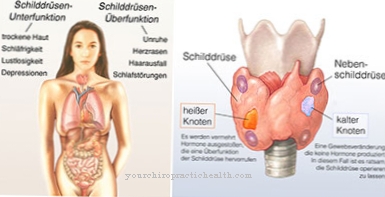




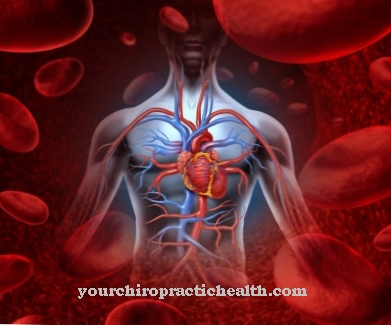

.jpg)




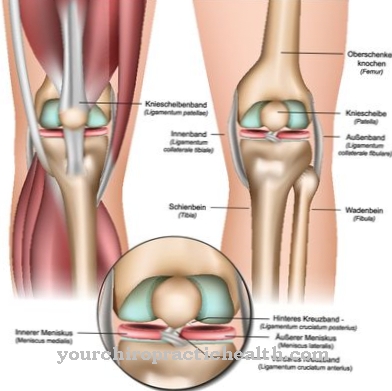
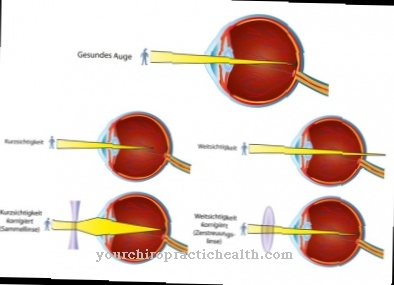
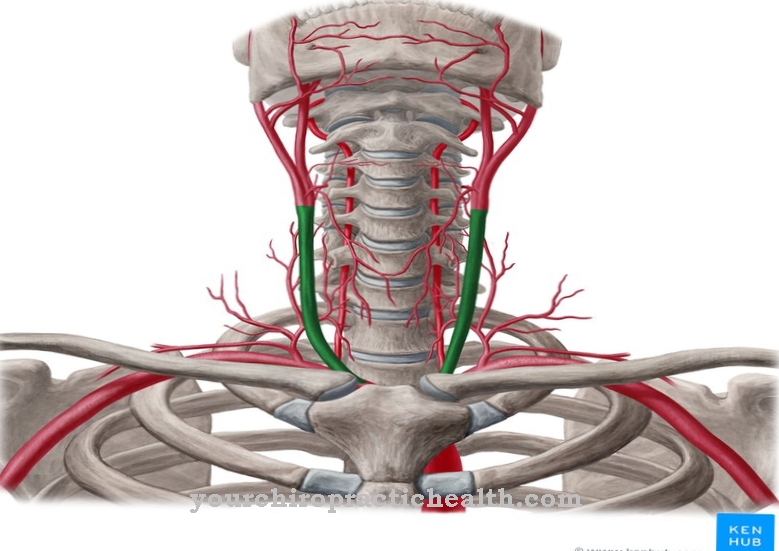
.jpg)

